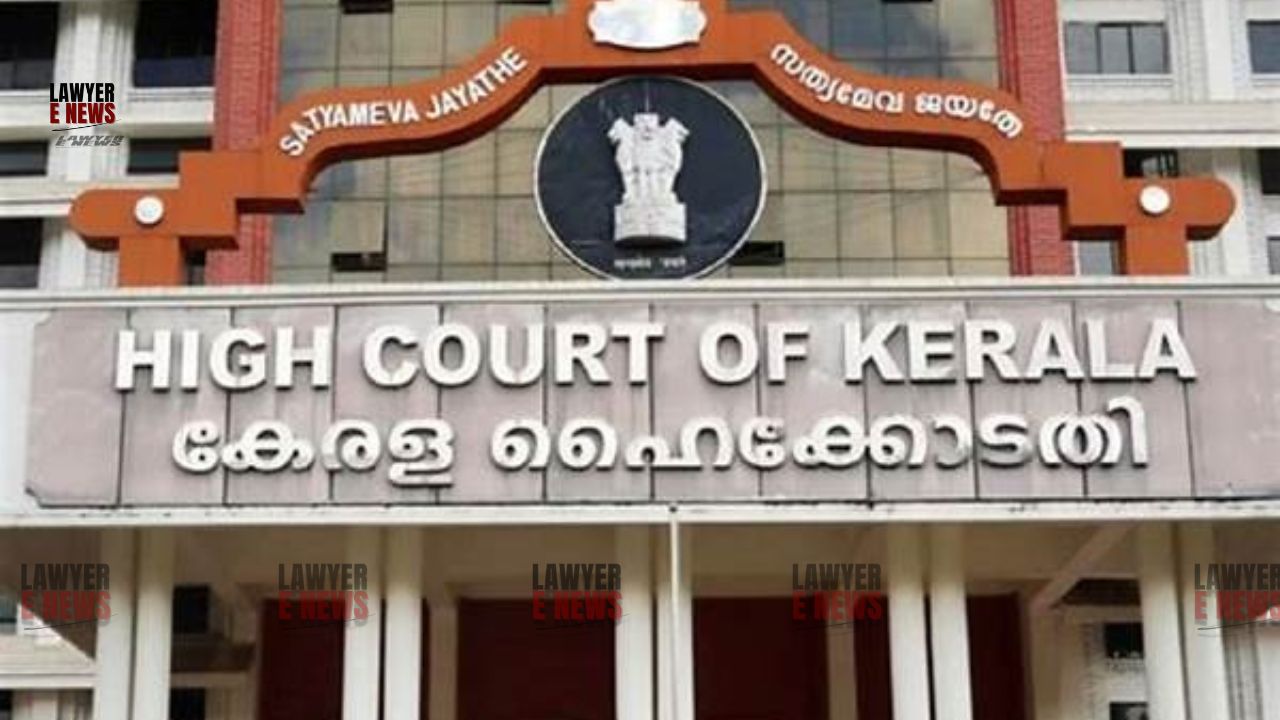-
by Admin
15 February 2026 5:35 AM



On September 24, 2024, the Kerala High Court, presided by Justice C.S. Dias, dismissed the anticipatory bail applications in Raju V. Vayalatt and Ajay Mani v. Union of India & The Senior Intelligence Officer, Directorate of Revenue Intelligence (DRI). The petitioners sought relief under Section 438 of the Code of Criminal Procedure, 1973, in connection with alleged gold smuggling under the Customs Act, 1962. The Court held that the DRI had lawful authority to investigate the case, dismissing the petitioners' claims of jurisdictional overreach. The Court further emphasized that anticipatory bail at this stage was premature, considering the ongoing investigation and the summons issued under Section 108 of the Customs Act.
The case originated from a smuggling operation wherein gold and foreign currency worth ₹2.60 crore were seized by the DRI’s Kochi unit in February 2024. The DRI received intelligence regarding a criminal gang smuggling gold into India from Abu Dhabi. Based on this tip-off, several individuals were intercepted, and gold in compound form was seized. The petitioners, Raju V. Vayalatt and Ajay Mani, allegedly had roles in the smuggling operation, according to statements recorded from arrested co-conspirators.
The DRI’s investigation revealed significant material connecting the petitioners to the crime, leading the agency to summon them for questioning under Section 108 of the Customs Act. Fearing arrest, the petitioners approached the Sessions Court, Ernakulam, for anticipatory bail, but their applications were dismissed. Subsequently, they filed for anticipatory bail in the Kerala High Court.
The petitioners contended that the DRI lacked the authority to conduct the investigation, arguing that its actions were void ab initio. They also claimed that the investigation was influenced by previous animosity against them.
Court’s Ruling: The Court dismissed this argument, pointing to the Finance Act, 2022, which amended Section 3 of the Customs Act to empower DRI officers with investigatory authority equivalent to Customs officers. The notification dated March 31, 2022, also explicitly conferred jurisdiction to DRI officers for issuing summons and recording statements. Therefore, the Court upheld the legitimacy of the DRI’s role, stating, “The DRI officers are competent to issue notices under Section 108 of the Act and summon the petitioners.”
The petitioners sought anticipatory bail, arguing that they were innocent and that custodial interrogation was unnecessary. The prosecution, however, countered that the investigation was at a crucial stage and that granting pre-arrest bail would obstruct the investigation.
Court’s Ruling: The Court referred to precedents, including Union of India v. Padam Narain Aggarwal (2008) 13 SCC 305, which clarified that statements recorded under Section 108 of the Customs Act are distinct from those recorded under police investigation in the CrPC. The Court held that granting anticipatory bail would interfere with the investigatory process, especially given that summons were issued for recording statements. The Court emphasized, "When a notice under Section 108 of the Act is issued to a person to record his statement, an application for pre-arrest bail is premature because it obstructs, interferes, and curtails the authority of the Customs Officers from exercising their statutory power."
The Court rejected the petitioners’ claims on both jurisdictional and substantive grounds. It reaffirmed that Section 108 of the Customs Act permits Customs officers, including DRI officials, to summon individuals for recording statements during the investigation. Anticipatory bail at such a stage would undermine the statutory powers granted to the investigating officers under the Customs Act.
Further, citing Ramesh Chandra Mehta v. State of West Bengal [AIR 1970 SC 940], the Court reiterated that individuals summoned under Section 108 are obligated to comply, and anticipatory bail cannot be granted merely based on the apprehension of arrest unless there is a substantial reason to believe the arrest is unlawful.
The Court concluded by emphasizing the importance of not interfering with the investigation, particularly in cases involving non-bailable offenses under Sections 135, 135A, 136, and 137 of the Customs Act.
The Kerala High Court dismissed the anticipatory bail applications filed by Raju V. Vayalatt and Ajay Mani, holding that the DRI’s investigation under the Customs Act was lawful and ongoing. The Court deemed the application for pre-arrest bail premature, directing that any future arrest should be based on a substantiated belief of the petitioners' involvement in the smuggling activities.
Date of Decision: September 24, 2024
Raju V. Vayalatt & Ajay Mani v. Union of India & The Senior Intelligence Officer, Directorate of Revenue Intelligence
